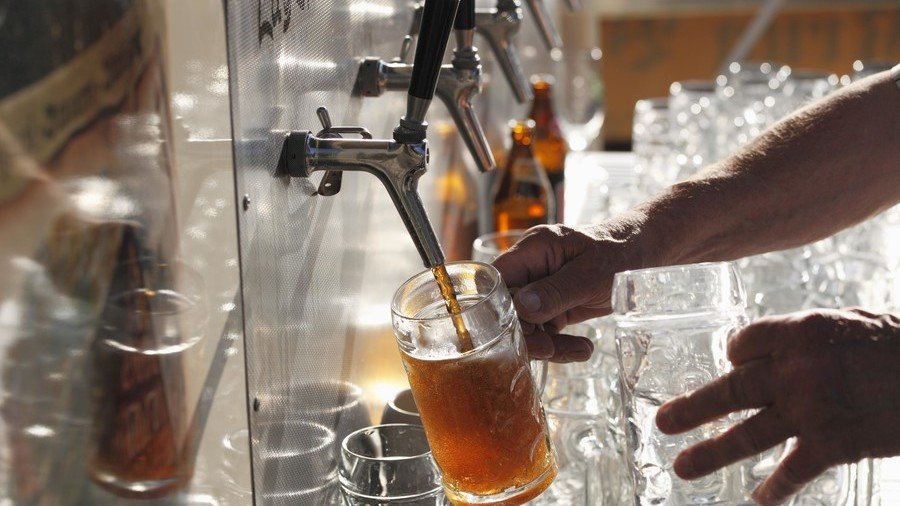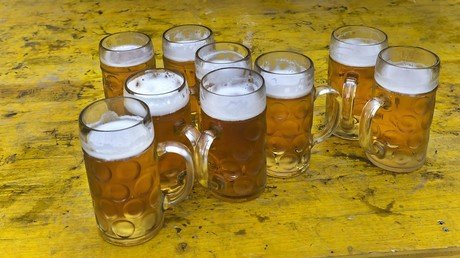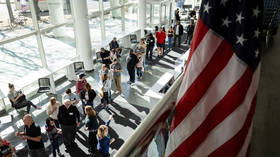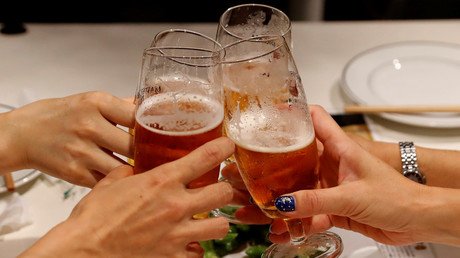Swedish brewery premiers ‘crystal clear pilsner’ brewed from sewage

To the joy of environmentalists, but maybe not so much to ardent beer lovers, a Carlsberg-linked brewery has unveiled 'Pu:rest,' the first beer made from sewage water. The water is thoroughly purified, though.
The project, inspired by the Swedish Environmental Research Institute (IVL), saw the New Carnegie Brewery, partly owned by Carlsberg, team up with an innovative sewage treatment plant.
Having undergone “a chain of purification stages,” the treated water was thoroughly tested before it was delivered to the brewery, IVL said. It took the New Carnegie Brewery only four weeks to come up with what its head, Chris Thurgeson, touted as “an ecological and crystal clear pilsner, brewed on recycled water with organic malt and hops.”
This Friday, the brewery staged a launch party, inviting everyone daring enough to taste the environment-friendly 4.8 percent drink. While the accounts of those who worked up the courage to take a sip are unknown, the researchers argued that the main challenge they face over its distribution is not technological, but psychological, since people are generally hostile to the idea that the water contaminated with human and other waste might be safe enough to drink.
While it’s hard to foretell whether commercial success is awaiting Pu:rest, the primary purpose of the project was not to sell beer, but make more people aware of the water shortage and the need to care about the environment, Filipsson said.
“The difficulties in getting this relatively cost- and energy-efficient method to be used for the production of drinking water is not technical but primarily emotional. The recycled water is as pure and safe as normal tap water, but most people are still skeptical about actually drinking purified wastewater,” Staffan Filipsson, project manager at IVL, said.
While it’s hard to foretell whether commercial success is awaiting Pu:rest, the primary purpose of the project was not to sell beer, but make more people aware of the water shortage and the need to care about the environment, Filipsson said.
“The main purpose of the project is to highlight sustainable water management and raise awareness of the global water issues and the value of clean water.”
The beer will be served in several restaurants and at festivals in June, the IVL said.
While the experimental pilsner is yet to make its way to the big market, it has already earned the nickname ‘crap beer’ (bajsöl).















